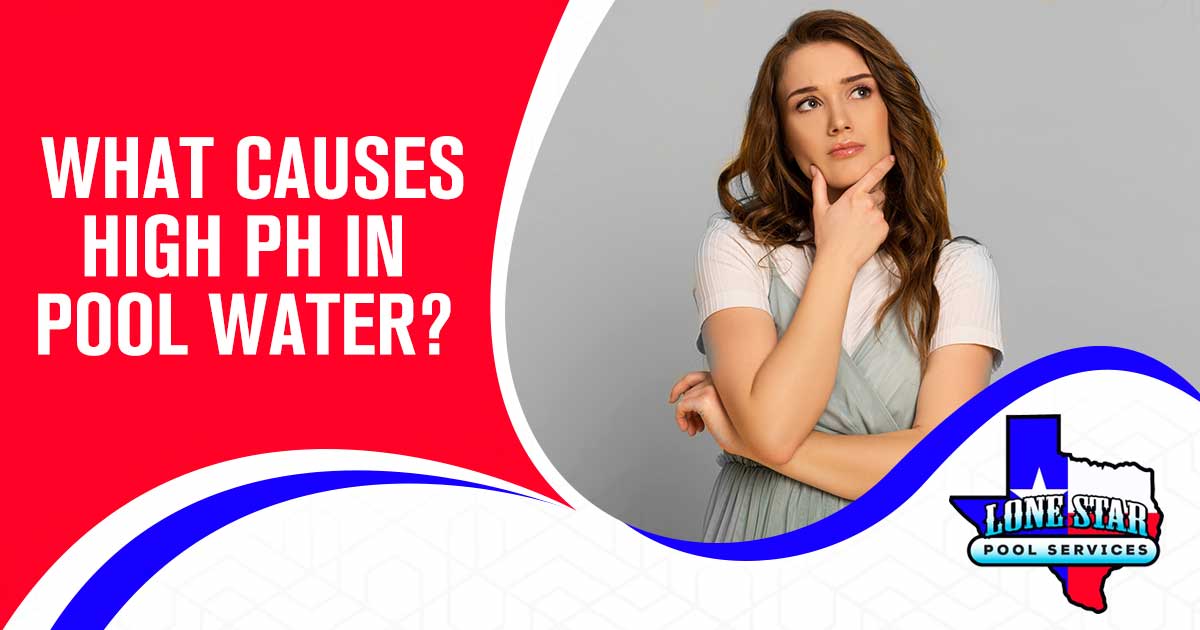What is pH?
pH is a scale used to measure water’s degree of alkalinity or acidity. The pH scale ranges from 0 to 14, and 7 is neutral. Water measuring higher than seven on the pH scale will be more alkaline than acidic, and water measuring lower than seven on the pH scale will be more acidic than alkaline.
What Is a Good pH for My Swimming Pool’s Water?
The acceptable pH range for swimming pool water is between 7.2 and 7.8; however, the ideal range is between 7.4 and 7.6. Pool water outside the acceptable pH range can be dangerous, and your pool’s pH must be measured regularly to ensure it remains within the safe range. You can calculate your pool’s pH yourself or do it by a pool technician as part of a scheduled pool cleaning service.
What Happens If My Swimming Pool Has a High pH Level?
It is considered alkaline if your pool’s water has a high pH. With a high-alkaline pool, chlorine and other sanitizing chemicals won’t work correctly, which prevents your pool from being adequately cleaned and allows bacteria to develop.
You can visibly see if your pool water has a high pH because alkaline water causes cloudy water and scaling on the sides of your swimming pool.
What Causes High pH in My Swimming Pool?
Your pool’s pH can change naturally through swimming and splashing, or other factors can cause it to rise. It’s essential to check your pool’s pH levels regularly and understand the factors that can cause a high pH.
Introduction of Alkaline Substances
When alkaline substances with a pH value greater than seven are added to your pool, they can raise the pH level. Baking soda and calcium carbonate are common alkaline substances that contribute to a high pH level, often found in tap water.
High Alkalinity
If your pool’s alkalinity levels are high, too many bicarbonate ions are in the water, pushing your pool’s pH level above the desired range.
Carbon Dioxide Loss
Carbon dioxide (CO2) is naturally present in the air and dissolves in water. It helps keep your pool’s pH level balanced, but when carbon dioxide is lost through splashing, aeration, or agitation, it rises, resulting in a high pH.
Pool Water (Internal) Temperature Changes
When the temperature increases, it affects the chemical reactions of any chemicals added to your pool, which could be used up faster than usual. Bacteria and contaminants in the pool will also multiply faster when the temperature rises.
Temperature changes can also influence your pool’s pH levels through evaporation. Warmer temperatures increase evaporation, increasing the concentration of minerals and substances in the pools. This results in an increase in alkalinity and scaling on pool surfaces.
External Temperature Changes
Pool usage increases during periods of hotter weather. When pool usage increases, more contaminants are introduced into the pool, and these substances can change your pool water’s chemical balance, leading to a high pH.
Environmental Factors
When a pool is filled with hard water with high levels of minerals like calcium and magnesium, the pH level tends to rise, as these minerals can increase alkalinity.
The plants and trees surrounding your pool can also affect the pH levels when organic compounds, such as pollen, leaves, branches, and other debris, find their way into your pool’s water through wind or rain.
What Problems Can a High pH in Pool Water Cause?
Pool water with a high pH that is too alkaline can cause several problems:
- Cloudy water
- Scaling on pool surfaces and equipment
- Dry skin or skin rashes
- Red, irritable eyes
- Algae buildup
- Chlorine will no longer successfully sanitize your pool
How Is a High pH in Pool Water Corrected?
When pool water is too alkaline, something has to be added to lower the pH. Chemical additives made for pools called pH reducers or pH minus can be used. Often, hydrochloric acid or muriatic acid are used. Your pool’s water must be tested to measure the pH, and then the amount of acid needed to lower the pH appropriately will need to be calculated.
How Can I Keep My Pool’s pH at the Proper Level?
Proper care and maintenance are essential for maintaining your poolf water’s pH. You’ll want to test your pool’s pH level, standard maintenance, and cleaning tasks. You can perform pH tests yourself or be done as part of a scheduled weekly pool cleaning service.
Lone Star Pool Services Offers Weekly Pool Cleaning Services to Help Keep Your Pool’s pH Balanced.
Call Lone Star Pool Services at 832-928-3017 or fill out our online contact form if you have questions about testing your pool’s pH or want to know more about our weekly pool cleaning services.

